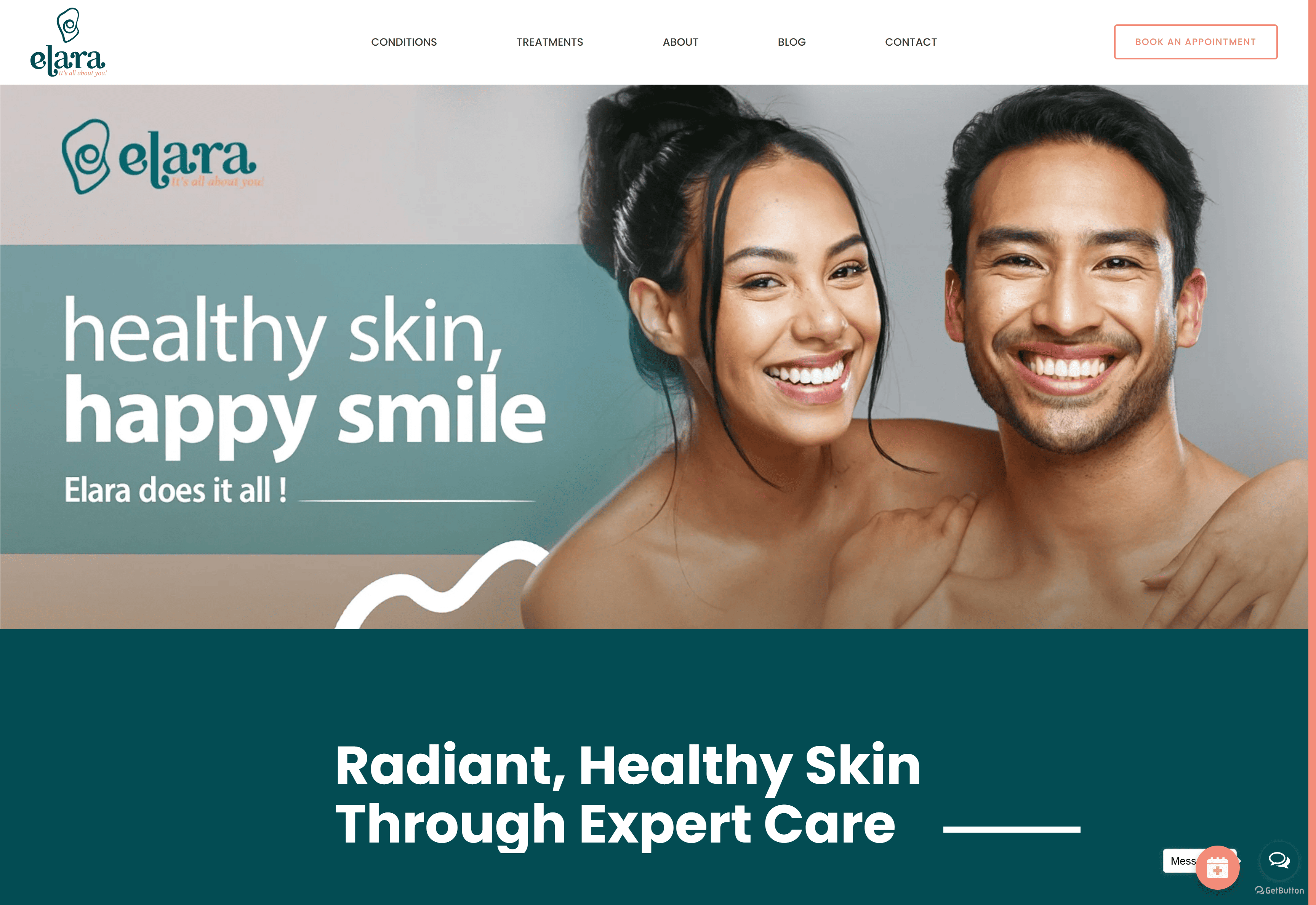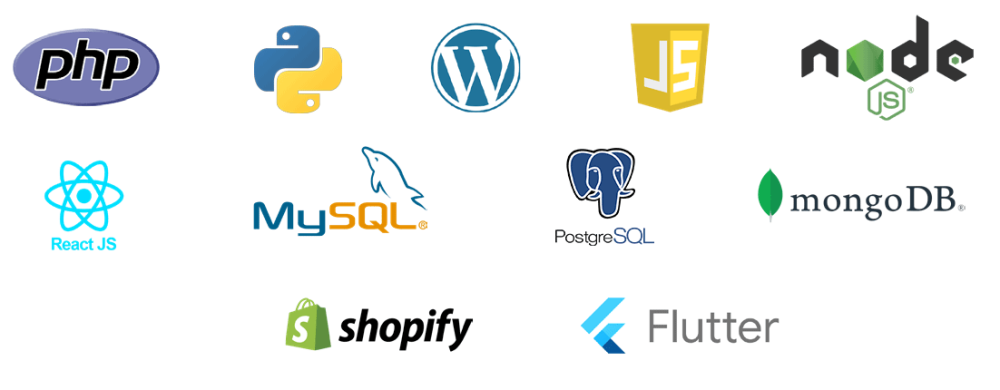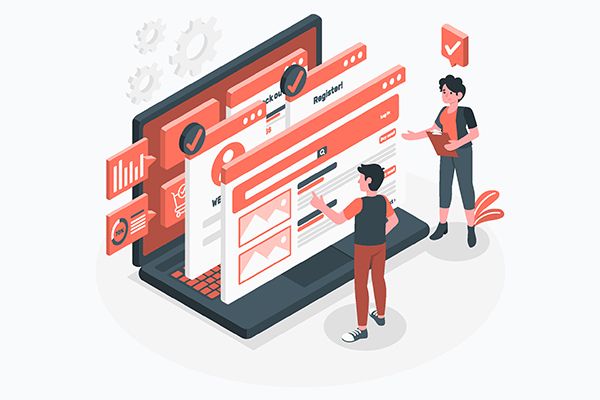Custom Medical Web Design & Development Services in Nepal
Running a hospital comes with countless daily challenges, and your website shouldn’t add to them. Custom Medical Web Design & Development makes it easier for patients to find information, book appointments, and access services online. A well-designed medical site supports your staff, builds patient trust, and modernizes care with features like secure payments and virtual consultations.

Why Healthcare Providers Need Custom Medical Websites
Hospitals and healthcare centers face growing challenges in meeting patient demands and managing internal processes efficiently. When considering custom vs template website options, generic templates often fall short in addressing these specific needs, leaving providers with limited control over patient interactions and data security. A custom medical website allows healthcare organizations to tailor features, workflows, and content to their unique requirements, ensuring both patients and staff have a seamless experience.
Build trust with patients through professional design
Clean, professional design conveys reliability and compassion, two qualities patients seek in healthcare providers. Clear information architecture helps visitors quickly find departments, doctors, and services, reducing frustration and building confidence.
Displaying certifications, staff credentials, and patient testimonials further enhances credibility. Visual consistency with your hospital’s branding reinforces your reputation and makes your facility feel familiar and trustworthy.
Streamline appointments and patient management
Managing patient appointments efficiently is crucial to reducing wait times and improving overall experience. A custom website can integrate an intuitive online scheduling system that syncs with your internal calendars, minimizing double bookings and missed appointments.
Automated reminders help patients stay on track, lowering no-show rates and freeing staff to focus on care rather than administrative tasks. Centralized patient management through the website also supports smoother check-ins and better communication across departments.
Provide secure access to health information
Patients expect their personal health data to be handled with the highest level of security and privacy. A custom healthcare website ensures secure portals where patients can safely view test results, medical history, and treatment plans without risk.
Implementing strong encryption and complying with data protection regulations protects your hospital from breaches and builds patient trust. Easy-to-use interfaces make it simple for patients of all ages to access their information, encouraging engagement and better health management.
Enable online payments and telemedicine
Convenience plays a major role in patient satisfaction. Integrating secure online payment options directly into your website allows patients to pay bills or co-pays effortlessly, reducing delays and administrative burden on your staff.
Telemedicine features offer remote consultations, expanding your hospital’s reach and providing care to patients unable to visit in person. This not only improves access but also keeps your hospital competitive in a rapidly evolving healthcare landscape.
Improve local and national search visibility
With more patients searching online for healthcare services, your hospital’s visibility in search engines is critical. A custom website built with local SEO in mind helps your facility appear prominently in search results, attracting nearby patients actively seeking care.
Optimized content, accurate business listings, and integration with Google Maps ensure patients find your hospital quickly and easily. Improving your search presence boosts appointment bookings and establishes your hospital as a trusted name in the community.
Essential Features of a Modern Healthcare Website
A well-designed healthcare website includes a range of features tailored to meet the needs of both patients and medical staff. These elements work together to provide a smooth, informative, and secure experience.
Online Appointment Scheduling System
Integrated Online Payments
Telemedicine & Virtual Care Integration
Search Engine Optimization (SEO)
Mobile-Responsive & Fast-Loading Design
Services & Pricing Details
Doctor/Department Profiles
Google Maps Integration
Live Chat or Online Medical Advice
Accessible UX & Easy Navigation
Health Blog or Education Section
Multilingual Support
Types of Medical Websites You Can Build
Business Websites
Catalog Websites
Health Education Platforms
Medical Landing Pages
Custom Medical Web Portals
Patient Portals
Mental Health Portals
Employee Portals
Diagnostic Lab Portals
Pharmacy Portals
Preventive Care Portals
Clinical Trial Portals
Healthcare Information Hubs
Supplier Portals
Streamline procurement by providing medical supply ordering, tracking, and inventory management for hospital purchasing departments and vendors.
Ready to create a secure, efficient portal tailored to your hospital’s unique needs?
Contact us today to discuss how custom medical web portals can transform your healthcare services.
Custom Medical Web Applications
Custom medical web applications are specialized software solutions built to support the complex needs of healthcare providers. These applications help improve clinical decision-making, patient management, and internal hospital operations through tailored digital tools.
Diagnostic Support & Clinical Decision Apps
These applications assist doctors and medical staff with real-time data analysis, diagnostics, and treatment recommendations, helping improve accuracy and patient outcomes.
Chronic Disease & Outpatient Care Management
Apps designed to monitor patients with chronic conditions, track their treatment progress, schedule follow-ups, and provide reminders, making ongoing care more efficient and personalized.
Hospital Information Systems (HIS)
Integrated systems that manage patient records, appointments, billing, staff scheduling, and inventory. HIS platforms centralize hospital operations, improving communication and data accessibility across departments.
Internal Operations Automation
Applications that automate administrative tasks such as HR management, payroll, procurement, and workflow processes, freeing up resources and reducing errors.
UX and Design Considerations in Medical Websites
Curves n’ Colors focus on creating intuitive user interfaces and seamless user experiences that make information easy to find and actions simple to complete. Our UI UX designing service in Nepal prioritizes accessibility, ensuring the website is usable for all age groups and abilities.
Navigation is streamlined to help visitors quickly reach departments, services, or contact points without confusion. The design emphasizes trust and transparency, using visual elements that reflect the credibility and care your healthcare facility offers.
Mobile-first approaches ensure your website performs smoothly on all devices, providing a consistent experience whether patients access it from phones, tablets, or desktops.
Benefits of Outsourcing Medical Website Development

We developed the web design and development for Elara Skin Clinic, creating a secure, scalable, and user-friendly platform tailored for healthcare. Curves n’ Colors specializes in healthcare UI/UX design, ensuring the website meets industry standards, supports patient engagement, and allows clinics to focus on care rather than technical management.
You can outsource your internal workload, allowing your team to focus on patient care rather than technical complexities. It also often proves more cost-effective than maintaining an in-house development team, while delivering faster launch times and ongoing support.
A scalable, secure, and user-friendly website developed by experts helps you build trust with patients and stay competitive in a rapidly evolving digital landscape.
Ready to elevate your healthcare digital presence?
Check out our portfolio to see how we’ve helped other healthcare providers create effective, patient-focused websites.
Our Expertise
Technology
-
Website Design and Development
Fully custom designed website
specifically curated for your
business. -
Web app development
Secure, reliable web portals that attract and engage customers -
Mobile app development
To keep up with on-the-go, mobilecentric consumers
-
Progressive web app development
Cost-effective web-based mobile application solutions that can operate in offline environments -
UI/UX design for website, web application & mobile apps
Curating seamless, intuitive experiences for application users -
Software development
Conceptualizing and creating innovative solutions that cater to your business
-
API development
Tools that help you connect and communicate across systems and other applications -
Comprehensive support & maintenance
Ongoing support from our full team of tech wizards for you websites -
Server hosting & support
Server setup, Monitoring and maintenance - one less thing for you to worry about
Technologies we use for development:


Art & Design
-
Logo
-
Graphics
-
Art
-
Sketch
Communication & Marketing
-
Content Development
(content writing, photography and videography)
-
SEO
-
Graphics
-
Social Media
-
E-newsletter
-
Workshop
(Branding & Strategic Communication)



